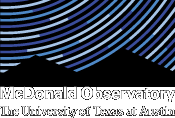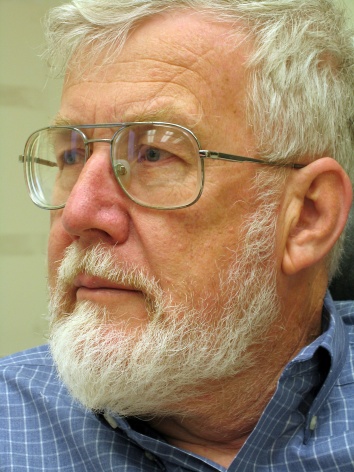Lambert to Lead McDonald Observatory
13 August 2003
Austin, Texas—Dr. David Lambert, chair of the Astronomy Department at The University of Texas at Austin, will succeed Dr. Frank Bash as director of McDonald Observatory on Oct. 1, the university has announced.
Lambert holds the Isabel McCutcheon Harte Centennial Chair in Astronomy. He will step down as department chair when he assumes the directorship.
Lambert's plans for the observatory include supporting the ongoing work directed at bringing the Hobby-Eberly Telescope (HET) to completion and exploring ways to become involved in new telescopes and instrumentation.
"I want to raise the HET's profile by bringing its scientific output up to expectations," he said. Lambert said he will expand present efforts for McDonald Observatory and the Department of Astronomy to become involved in the building of a much larger telescope, in all probability as part of a consortium of universities and agencies.
"A significant share in a very large telescope should be a priority goal for the Observatory and the Department," he said.
Lambert came to The University of Texas at Austin as a faculty associate in 1969, was appointed associate professor in 1970, professor in 1974 and the Isabel McCutcheon Harte Chair in 1987. He was educated in England, obtaining his bachelor’s and doctor’s degrees from the University of Oxford. Between Oxford and Texas, he was a research fellow of the California Institute of Technology and the Mount Wilson and Palomar Observatories.
In four decades of research in astronomical spectroscopy, he has published 400 papers on topics from the composition of the Sun, molecular emission by comets, the chemistry of the diffuse interstellar medium, and stellar nucleosynthesis and evolution. In 1987, his work on the quantitative analysis of stellar spectra was recognized with the Dannie Heineman Prize for Astrophysics awarded by the American Institute for Physics and the American Astronomical Society.
He has held visiting professorships at the European Southern Observatory in Garching, Germany, the University of Canterbury in Christchurch, New Zealand, and the Indian Institute of Astrophysics in Bangalore, India.
— END —






